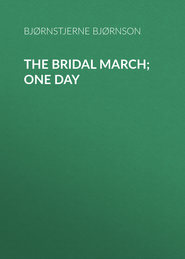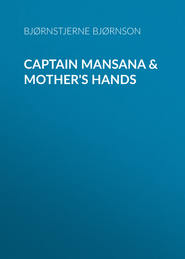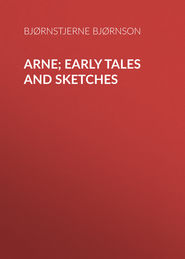По всем вопросам обращайтесь на: info@litportal.ru
(©) 2003-2024.
✖
Absalom's Hair
Настройки чтения
Размер шрифта
Высота строк
Поля
Soon every one knew that "Puss" was she of the tumbled red locks, "the tall Renaissance figure with the Titian hair."
Her hair was abundant, glossy, and slightly curling; she still wore it hanging loose over her neck and shoulders, as she had done as a child. Her great eyes seemed to look out upon a new world; but one felt that the lower part of her face was scarcely in harmony with the upper. The cheeks fell in a little; the prominent nose made the mouth look smaller than it actually was; her neck seemed only to lead the eye downward to her bosom, which almost appeared to caress her throat, especially when her head was bent forward, as was generally the case. And very beautiful the throat was, delicate in colour, superb in contour, and admirably set upon the bust. For this reason she could never find in her heart to hide this full white neck, but always kept it uncovered. Her finely moulded bust surmounting a slender waist and small hips, her rounded arms, her long hands, her graceful carriage, in her tightly-fitting dress, formed such a striking picture that one did more than look—one was obliged to study her, When the elegance and beauty of her dress were taken into account, one realised how much intelligence and artistic taste had here been exercised.
She was friendly in society, natural and composed, always occupied with something, always with that wondering expression. She spoke very little, but her words were always well chosen.
All this, and her general disposition, made people chary of opposing her, more especially those who knew how intelligent she was and how much knowledge she possessed.
She had no friends of her own, but her innumerable relations supplied her with society, gossip, and flattery, and were at once her friends and body-guard. She would have had to go abroad to be alone.
Among these relations she was a princess: they not only paid her homage, but had sworn by "Life and Death" that she must marry without more ado, which was absolutely against her wish.
From her childhood she had been laying by money, but the amount of her savings was far less than her relations supposed. This rather mythical fortune contributed not a little to the fact that "every one" was in love with her. Not only the bachelors of the family, that was a matter of course, but artists and amateurs, even the most blase, swarmed round her, la jeunesse doree (which is homely enough in Norway), without an exception. A living work of art, worth more or less money, piquante and admired, how each longed to carry her home, to gloat over her, to call her his own!
There was surely more intensity of feeling near her than near others, a losing of oneself in one only; that unattainable dream of the world-weary.
With her one could lead a thoroughly stylish life, full of art and taste and comfort. She was highly cultivated, and absolutely emancipated—our little country did not, in those days, possess a more alluring expression.
When face to face with her they were uncertain how to act, whether to approach her diffidently or boldly, smile or look serious, talk or be silent.
What these idle wooers gleaned from her stories, her characteristic dress, her wondering eyes, and her quiet dreaminess, was not the highest, but they expended their energy thereon; so that their unbounded discomfiture may be imagined when, in the autumn, the news spread that Fruken Kristen Ravn was married to Harald Kaas.
They burst into peals of derisive laughter they scoffed, they exclaimed; the only explanation they could offer was that they had too long hesitated to try their fortune.
There were others, who both knew and admired her, who were no less dismayed. They were more than disappointed—the word is too weak; to many of them it seemed simply deplorable. How on earth could it have happened? Every one, herself excepted, knew that it would ruin her life.
On Kristen Ravn's independent position, her strong character, her rare courage, on her knowledge, gifts, and energy, many, especially women, had built up a future for the cause of Woman. Had she not already written fearlessly for it? Her tendency towards eccentricity and paradox would soon have worn off, they thought, as the struggle carried her forward, and at last she might have become one of the first champions of the cause. All that was noblest and best in Kristen must predominate in the end.
And now the few who seek to explain life's perplexities rather than to condemn them discovered—Some of them, that the defiant tone of her writings and her love of opposition bespoke a degree of vanity sufficient to have led her into fallacy. Others maintained that hers was essentially a romantic nature which might cause her to form a false estimate both of her own powers and of the circumstances of life. Others, again, had heard something of how this husband and wife lived, one in each wing of the house, with different staffs of servants, and with separate incomes; that she had furnished her side in her own way, at her own expense, and had apparently conceived the idea of a new kind of married life. Some people declared that the great lime-trees near the mansion at Hellebergene were alone responsible for the marriage. They soughed so wondrously in the summer evenings, and the sea beneath their branches told such enthralling stories. Those grand old woods, the like of which were hardly to be found in impoverished Norway, were far dearer to her than was her husband. Her imagination had been taken captive by the trees, and thus Harald Kaas had taken HER. The estate, the climate, the exclusive possession of her part of the house: this was the bait which she had chosen. Harald Kaas was only a kind of Puck who had to be taken along with it. But it is doubtful whether this conjecture was any nearer the truth. No one ever really knew. She was not one of those whom it is easy to catechise.
Every one wearies at last of trying to solve even the most interesting of enigmas. No one could tolerate the sound of her name when, four months after her marriage, she was seen in a stall at the Christiania Theatre just as in old days, though looking perhaps a little paler. Every opera-glass was levelled at her. She wore a light, almost white, dress, cut square as usual. She did not hide her face behind her fan. She looked about her with her wondering eyes, as though she was quite unconscious that there were other people in the theatre or that any one could be looking at her. Even the most pertinacious were forced to concede that she was both physically and mentally unique, with a charm all her own.
But just as she had become once more the subject of general conversation, she disappeared. It afterwards transpired that her husband had fetched her away, though hardly any one had seen him. It was concluded that they must have had their first quarrel over it.
Accurate information about their joint life was never obtained. The attempts of her relations to force themselves upon them were quite without result, except that they found out that she was enceinte, notwithstanding her utmost efforts to conceal the fact.
She sent neither letter nor announcement; but in the summer, when she was next seen in Christiania, she was wheeling a perambulator along Karl Johan Street, her eyes as wondering as though some one had just put it between her hands. She looked handsomer and more blooming than ever.
In the perambulator lay a boy with his mother's broad forehead, his mother's red hair. The child was charmingly dressed, and he, as well as the perambulator, was so daintily equipped, so completely in harmony with herself, that every one understood the reply that she gave, when, after the usual congratulations, her acquaintances inquired, "Shall we soon have a new story from you?"—she answered, "A new story? Here it is!"
But, notwithstanding the unalloyed happiness which she displayed here, it could no longer be concealed that more often than not she was absent from home, and that she never mentioned her husband's name. If any one spoke of him to her, she changed the subject. By the time that the boy was a year old, it had become evident that she contemplated leaving Hellebergene entirely. She had been in Christiania for some time and had gone home to make arrangements, saying that she should come back in a few days.
But she never did so.
The day after her return home, while the numerous servants at Hellebergene, as well as the labourers with their wives and children, were all assembled at the potato digging, Harald Kaas appeared, carrying his wife under his left arm like a sack. He held her round the waist, feet first, her face downwards and hidden by her hair, her hands convulsively clutching his left thigh, her legs sometimes hanging down, sometimes straight out. He walked composedly out with her, holding in his right hand a bunch of long fresh birch twigs. A little way from the gallery he paused, and laying her across his left knee, he tore off some of her clothes, and beat her until the blood flowed. She never uttered a sound. When he put her from him, she tremblingly rearranged—first her hair, thus displaying her face just as the blood flowed back from it, leaving it deadly white. Tears of pain and shame rolled down her cheeks; but still not a sound. She tried to rearrange her dress, but her tattered garments trailed behind her as she went back to the house. She shut the door after her, but had to open it again; her torn clothes had caught fast in it.
The women stood aghast; some of the children screamed with fright: this infected the rest, and there was a chorus of sobs. The men, most of whom had been sitting smoking their pipes, but who had sprung to their feet again, stood filled with shame and indignation.
It had not been without a pang that Harald Kaas had done this, his face and manner had shown it for a long time and still did so; but he had expected that a roar of laughter would greet his extraordinary vagary. This was evident from the composure with which he had carried his wife out; and still more from the glance of gratified revenge with which he looked round him afterwards. But there was only dead stillness, succeeded by weeping, sobbing, and indignation. He stood there for a moment, quite overcome, then went indoors again, a defeated, utterly broken man.
In every encounter with this delicate creature the giant had been worsted.
After this, however, she never went beyond the grounds. For the first few years she was only seen by the people about the estate, and by them but seldom. Sometimes she would take her boy out in his little carriage, or, as time went on, would lead him by the hand, sometimes she was alone. She was generally wrapped in a big shawl, a different one for each dress she wore, and which she always held tightly round her. This was so characteristic of her that to this day I hear people from the neighbourhood talk about it as though she were never seen otherwise.
What then did she do? She studied; she had given up writing: for more than one reason it had become distasteful to her. She had changed roles with her husband, giving herself up to mathematics, chemistry, and physics, she made calculations and analyses—sending for books and materials for these objects. The people on the estate saw nothing extraordinary in all this. From the first they had admired her delicacy and beauty. Every one admired her; it was only the manner and degree that varied.
Little by little she came to be regarded as one whose life and thoughts were beyond their comprehension.
She sought no one, but to those who came to her she never refused help—more or less. She made herself well acquainted with the facts of each case; no one could ever deceive her. Whether she gave much or little, she imposed no conditions, she never lectured them. Her opinion was expressed by the amount that she gave.
Her husband's behaviour towards her was such that, had she not been very popular, she could not have remained at Hellebergene; that is to say, he opposed and thwarted her in every way he could; but every one took her part.
The boy! Could not he have been a bond of union? On the contrary, there were those who declared that it was from the time of his birth that things had gone amiss between the parents. The first time that his father saw him the nurse reported that he "came in like a lord and went out like a beggar!" The mother lay down again and laughed; the nurse had never seen the like of it before. Had he expected that his child must of necessity resemble him, only to find it the image of its mother?
When the boy was old enough he loved to wander across to his father's rooms where there were so many curious things to see; his father always received him kindly, talking in a way suited to his childish intelligence, but he would take occasion to cut away a quantity of his hair. His mother let it grow free and long like her own, and his father perpetually cut it. The boy would have been glad enough to be rid of it, but when he grew a little older, he comprehended his father's motive, and thenceforth he was on his guard.
When the people on the estate had told him something of his father's highly-coloured histories of his feats of strength and his achievements by land and water, the boy began to feel a shy admiration for him, but at the same time he felt all the more strongly the intolerable yoke which he laid upon them—upon every living being on the estate. It became a secret religion with him to oppose his father and help his mother, for it was she who suffered. He would resemble her even to his hair, he would protect her, he would make it all up to her. It was a positive delight to him when his father made him suffer: he absolutely felt proud when he called him Rafaella, instead of Rafael, the name which his mother had chosen for him; it was the one that she loved best.
No one was allowed to use the boats or the carriage, no one might walk through the woods, which had been fenced in, the horses were never taken out. No repairs were undertaken; if Fru Kaas attempted to have anything done at her own expense, the workmen were ordered off: there could no longer be any doubt about it, he wished everything to go to rack and ruin. The property went from bad to worse, and the woods—well! It was no secret, every one on the place talked about it—the timber was being utterly ruined. The best and largest trees were already rotten; by degrees the rest would become so.
At twelve years of age Rafael began to receive religious teaching from the Dean: the only subject in which his mother did not instruct him. He shared these lessons with Helene, the Dean's only child, who was four years younger than Rafael and of whom he was devotedly fond.
The Dean told them the story of David. The narrative was unfolded with additions and explanations; the boy made a picture of it to himself; his mother had taught him everything in this way.
Assyrian warriors with pointed beards, oblique eyes, and oblong shields, had to represent the Israelites; they marched by in an endless procession. He saw the blue-green of the vineyards on the hillside, the shadow of the dusty palm-trees upon the dusty road. Then a wood of aromatic trees into which all the warriors fled.
Then followed the story of Absalom.
"Absalom rebelled against his father, what a dreadful thing to think of," said the Dean. "A grown-up man to rebel against his father." He chanced to look towards Rafael, who turned as red as fire.
The thought which was constantly in his mind was that when he was grown up he should rebel against his father.
"But Absalom was punished in a marvellous manner," continued the Dean. "He lost the battle, and as he fled through the woods, his long hair caught in a tree, the horse ran away from under him, and he was left hanging there until he was run through by a spear."
Rafael could see Absalom hanging there, not in the long Assyrian garments, not with a pointed beard. No! Slender and young, in Rafael's tight-fitting breeches and stockings, and with his own red hair! Ah! how distinctly he saw it! The horse galloping far away—the grey one at home which he used to ride by stealth when his father was asleep after dinner. He could see the tall, slender lad, dangling and swaying, with a spear through his body. Distinctly! Distinctly!
This vision, which he never mentioned to a soul, he could not get rid of. To be left hanging there by his hair—what a strange punishment for rebelling against his father!
Certainly he already knew the history, but till now he had paid no special heed to it.
It was on a Friday that this great impression had been made on him, and on the following Thursday morning he awoke to see his mother standing over him with her most wondering expression. Her hair still as she had plaited it for the night; one plait had touched him on the nose and awoke him before she spoke. She stood bending over him, in her long white nightgown with its dainty lace trimming, and with bare feet. She would never have come in like that if something terrible had not happened. Why did she not speak? only look and look—or was she really frightened?
"Mother!" he cried, sitting up.
Then she bent close down to him. "THE MAN IS DEAD," she whispered. It was his father whom she called "the man," she never spoke of him otherwise.
Rafael did not comprehend what she said, or perhaps it paralysed him. She repeated it again louder and louder, "The man is dead, the man is dead."
Then she stood upright, and putting out her bare feet from under her nightgown, she began to dance—only a few steps; and then she slipped away through the door which stood half open. He jumped up and ran after her; there she lay on the sofa, sobbing. She felt that he was behind her, she raised herself quickly, and, still sobbing, pressed him to her heart.











